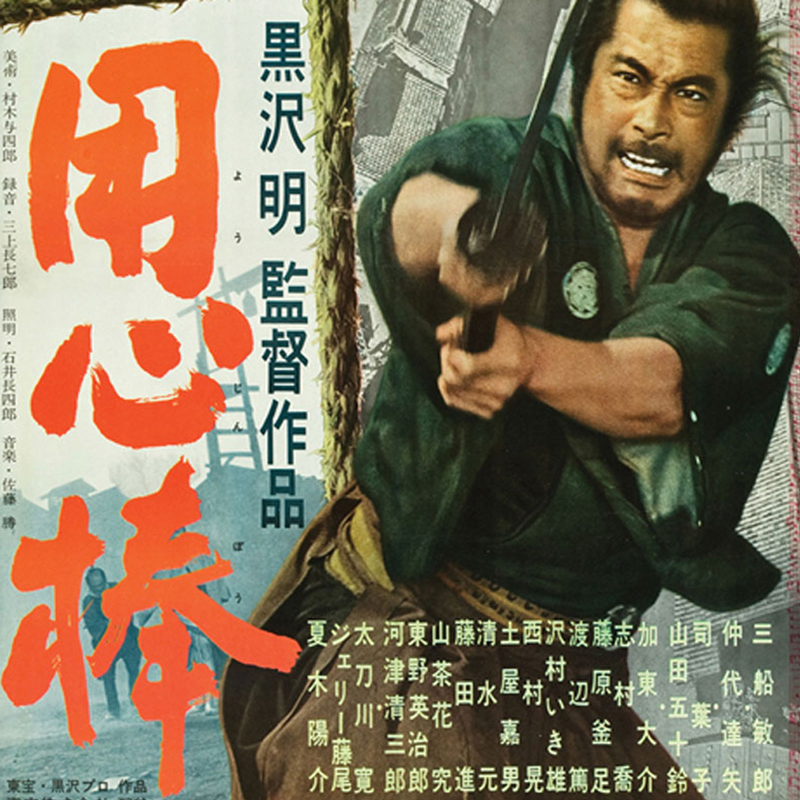Yojimbo (用心 棒, Yōjinbō) is a 1961 film directed by Akira Kurosawa.
The story takes place in 1860 and is based on the arrival of a ronin, Sanjuro Kuwabatake (Toshiro Mifune), in a village that is a victim of rivalry between ambitious families. The families of Seibei (Seizaburo Kawazu) and Ushitora (Kyū Sazanka) exploit gambling addictions and control major economic activities. Ushitora had been Seibei's right-hand man but rebelled when Seibei decided that his successor would be his son Yoichiro.
After sizing up the situation, Sanjuro then decides to intervene for the good of the townsfolk. He launches a series of traps and intrigues in which he constantly pits the families against each other. But the arrival of Ushitora's brother Unosuke (Tatsuya Nakadai), who carries a pistol, ultimately jeopardises Sanjuro's plan.
The fights in this film work beautifully, as Kurosawa runs away from the blood and focuses on the choreography. The first big moment is when Sanjuro takes on one gang to show the other that he's good at what he does. No athletic or heroic fights. What we see is speed, precision, and stunning movements. Then we see the next great clash between the two rival sides is like a coordinated dance.
Another fun fact is that, at Kurosawa's request, Ichiro Minawa not only recreated the sounds of swords hitting each other, he also set the industry standard for the sound of these weapons cutting through human flesh. From pork and beef to chickens and wet rags, Minawa created a rich sound library of effects.
Yojimbo was a great influence both in Japan and the West. In 1964, it was remade as A Fistful of Dollars, a Spaghetti Western directed by Sergio Leone and starring Clint Eastwood. They never actually got permission to remake Yojimbo, and shortly after the film was released in Europe, Kurosawa launched a plagiarism suit.
Last Man Standing (1996) was an official remake of Yojimbo, with Kikushima and Kurosawa receiving a story credit on the film. The actual screenplay was written by director Walter Hill.

